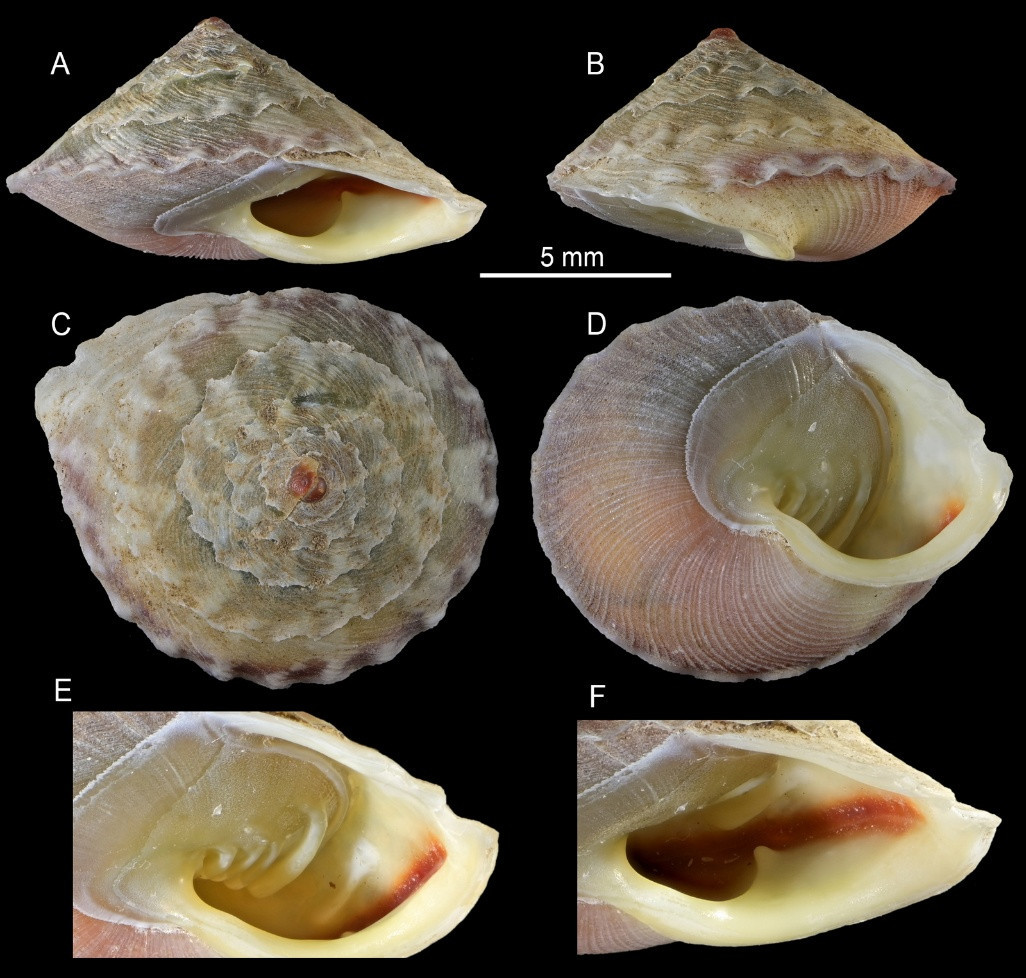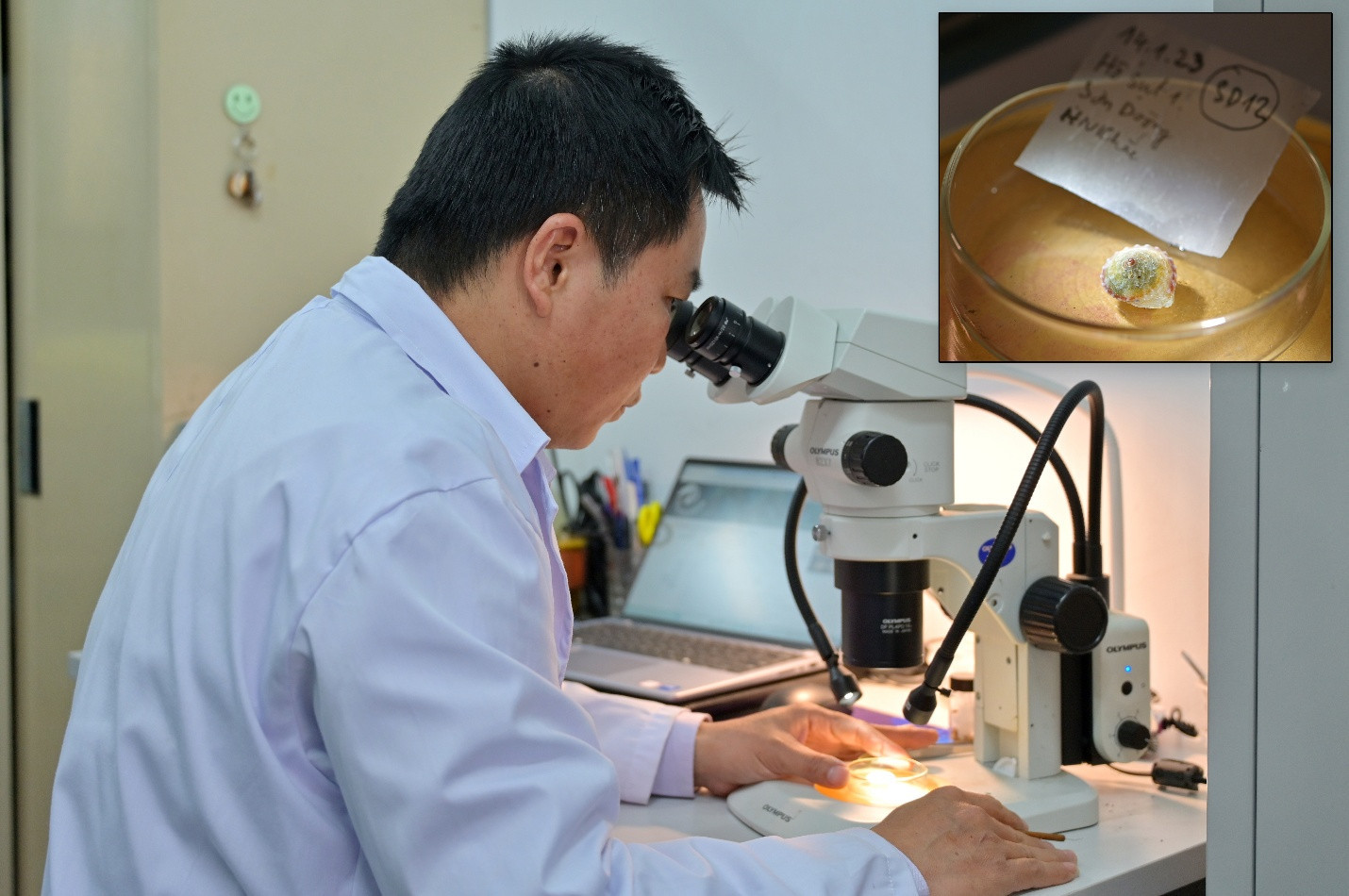Scientists from the Faculty of Biology at the Vietnam National University, Hanoi - Dr. Do Duc Sang and Nguyen Thanh Son - along with other domestic researchers, have announced the discovery of a new land snail species.
The newly identified species has been named Calybium plicatus Hoang et al., 2025, reflecting the presence of ridges on the shell’s inner lip (from the Latin plicatus, meaning fold or ridge).
The specimen was found in the first sinkhole of Son Doong Cave, located within Phong Nha-Ke Bang National Park in Quang Binh Province.
A rare addition to global biodiversity
This is only the second species within the genus Calybium Morlet, 1892 (Gastropoda: Helicinidae) to be discovered worldwide. It also marks the first recorded presence of this genus in Vietnam's fauna.
Dr. Do Duc Sang, while analyzing the specimen at the Department of Applied Zoology, emphasized that this discovery underscores Vietnam’s status as a global biodiversity hotspot, especially within its limestone forest and cave ecosystems.
The findings were published in the January 2025 issue of Ruthenica: Russian Malacological Journal.
Significance of the discovery
The discovery of Calybium plicatus not only adds to the scientific understanding of gastropod diversity but also highlights the ecological uniqueness of Vietnam's karst landscapes and cave systems.
Vietnam’s rich biodiversity is increasingly recognized for its global significance, with Phong Nha-Ke Bang National Park continuing to yield remarkable discoveries that contribute to science and conservation.
Thanh Hung

